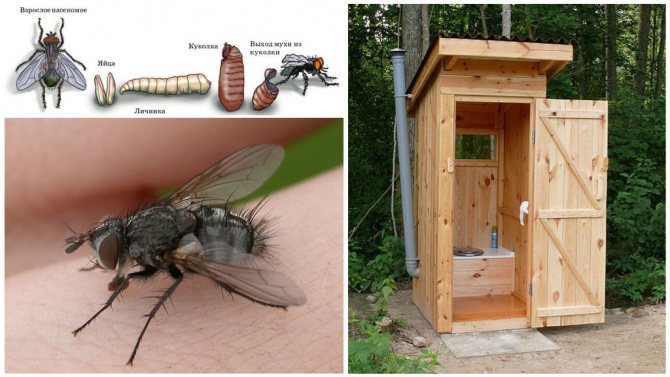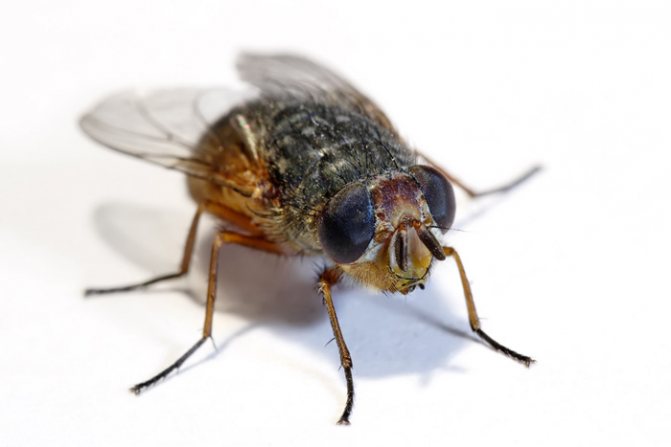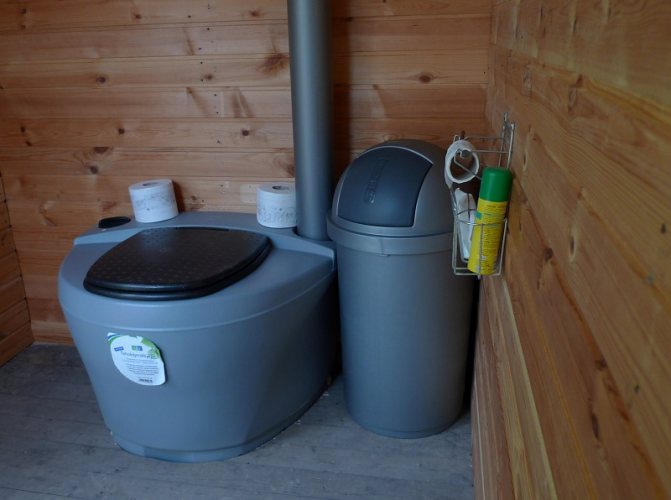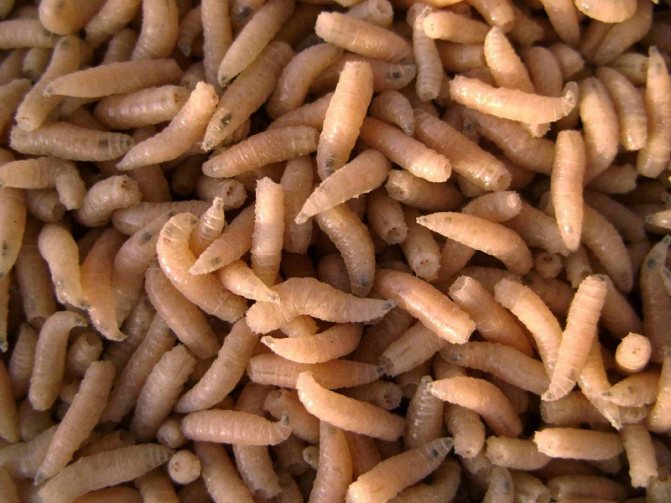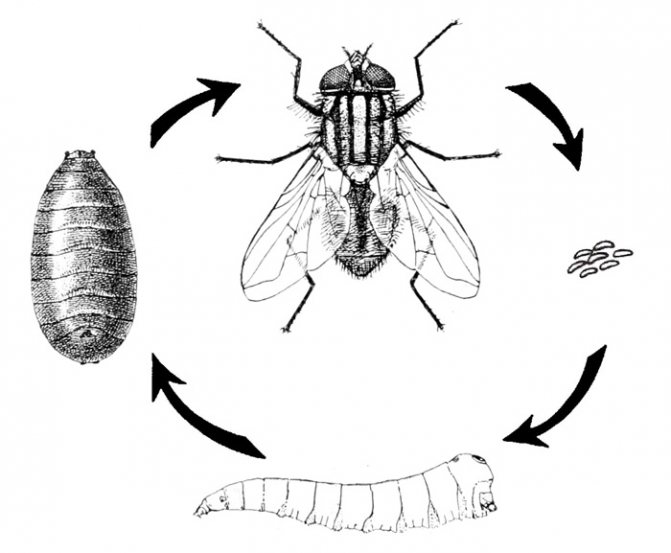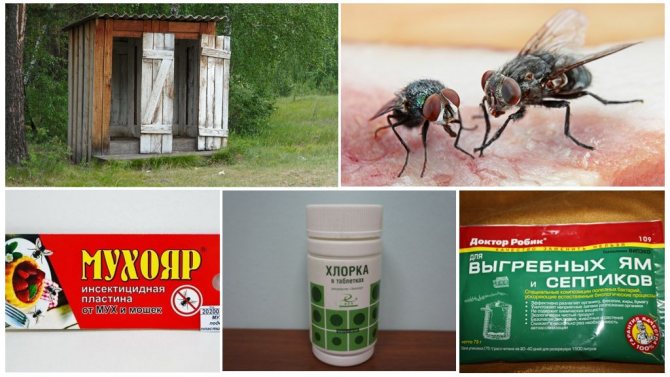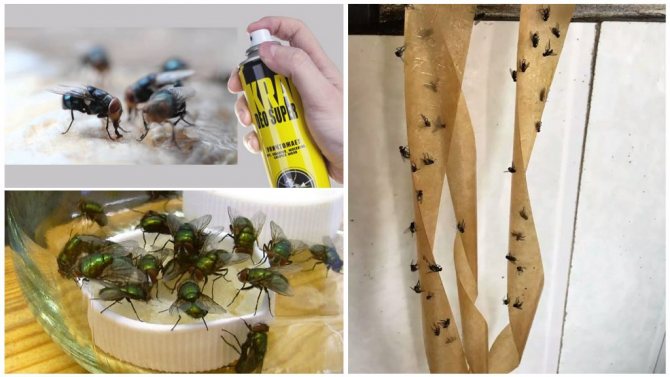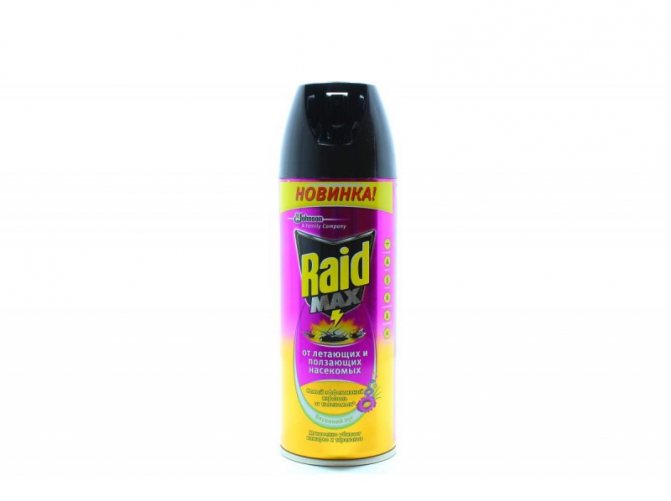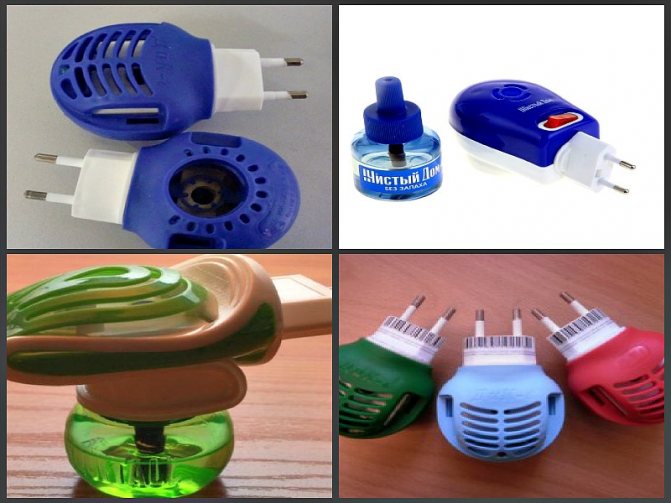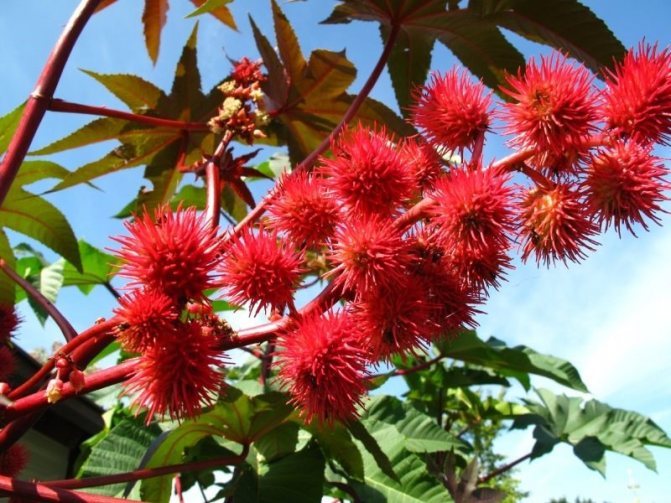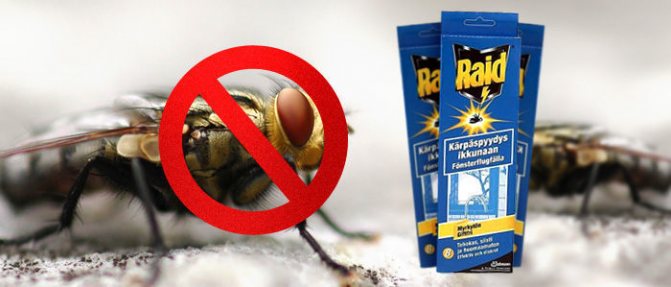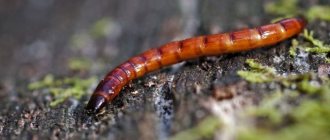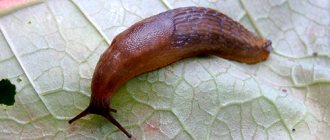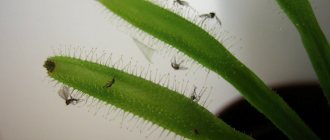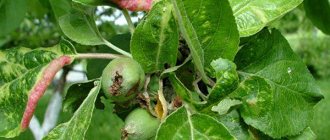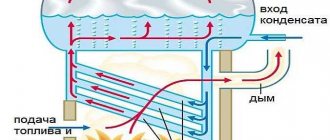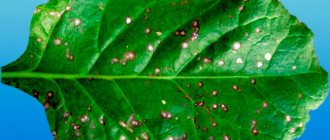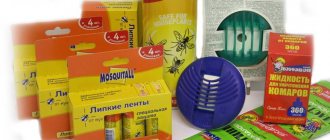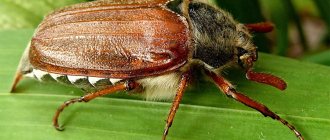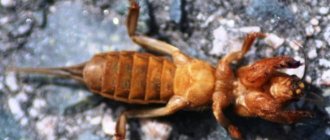05/01/2017 by Julia
A flush toilet is an excellent place for life and reproduction of various creatures that are able to feed on human waste products. How to get rid of maggots and other unpleasant reptiles that have settled in a country street toilet? Is it possible to use chemistry in this case, or is it better to use traditional folk remedies? It is possible to answer these questions only after a detailed investigation and understanding where such unpleasant creatures come from.
Flies and maggots
Flies always concentrate where there is rotting waste, food and human excrement - namely, in garbage piles, kitchens and toilets, which in the private sector are often a simple wooden booth with a hole in the ground. A huge number of flies also swarm in animal droppings, since decaying biological waste is an ideal environment for laying fly eggs, which subsequently turn into maggots.
Adult flies, unlike their larvae, feed in houses where sweet, meat and fish products lie on the tables.
The most common type of fly is the housefly. At a time, she lays about a hundred eggs in rotten vegetable and other garbage, which in a few hours will literally be teeming with maggots. After a few days, the larvae pupate, and after about three to four days, adult flies develop from them, which live from a month to forty days, having time to produce about three thousand more flies of their kind during this time.
Reproduction
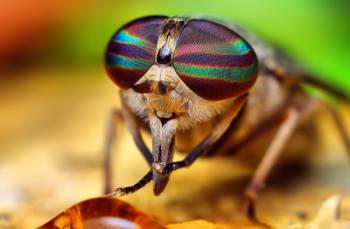
It's time to answer the question of how flies appear in our house. Adults of this insect live extremely shortly, and the essence of their existence is to fulfill their reproductive duty to their species.
The larvae of this pest need a moist and nutritious environment for development, therefore, after mating, the female fly begins to search for the most favorable place for her future offspring.
Fighting flies and maggots: how to get them out
To get rid of flies, first of all, it is necessary to maintain maximum cleanliness in the country house and in the surrounding area. Indoors should be completely free of crumbs, food debris, bread on the table, dirty floors, old food for a cat or dog, and so on - and outside the house there should be no unmade trash heaps, pet excrement and an uncleaned toilet, which is generally better replaced with a modern dry closet ...
Flies cannot stand darkness and drafts - in order to drive them out of the house, you need to turn off the lights everywhere in the evening and ventilate all rooms well.
If it is quite easy to get rid of houseflies, then with street flies the situation is somewhat more complicated. They usually hang around their place of birth - especially street toilets. To destroy maggots waiting in the darkness of the latrine, you need to dilute an insecticide tablet in several liters of water to kill insect pests and pour this solution into the opening of the toilet. The maggots will die after ten to fifteen minutes, and the new generation of flies will be killed in the bud. Adult flies can be destroyed using traditional duct tape and other conventional methods.A similar procedure with an insecticide should be carried out once a month every summer - this will help get rid of the root cause of the appearance of the countless fly army.


With the onset of the warm season, owners of suburban areas begin to have problems with flies, especially in toilets, which attract insects with wet excrement and odors. This is a favorable environment for their reproduction. If the flies and their larvae are not destroyed in time, offspring will appear in the future and the situation will worsen. To combat them in country and outdoor toilets, you can use electrical devices, folk and chemical agents.
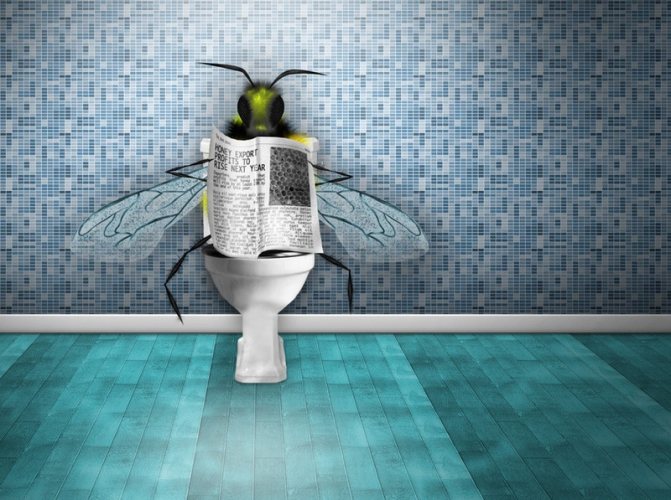

Toilet fly control
Development cycle of larvae
After fertilization, eggs form inside the female for several days. In viviparous flies, this process is always 2-3 days longer. After laying in a favorable environment, the worms are able to hatch after 2 days. Postponing begins in late March and lasts until mid-autumn.
On a note!
The fly larvae are called maggots. The term was given to unpleasant creatures due to its rapid growth, similar to yeast dough, which is called dough. Maggots move quickly, feed constantly, grow every day. For 10 days of their active development, the larvae increase in size from 1 mm to 13 mm.
Outwardly, the maggot looks like a worm. The color is off-white or yellowish. Has no legs, head separation. On the one hand, the body is pointed, in this part the oral apparatus is located, on the other, it is cut off. They are moved with the help of special hooks, initially they are fixed, then pulled up.
The larvae, depending on temperature conditions, develop from 10 days to 20. During this time, about 4 molts pass. The old chitinous cover is periodically discarded, increasing in size. A photo of a fly larva is presented below.
At the last stage, pupation occurs. Maggots seek out a dry, cool place or burrow into the soil. The body hardens, becomes immovable. Within three days, an adult fly appears, ready for fertilization. The entire life cycle of an insect from egg to imago takes 15 days on average. Flies of a new generation hatch up to 20 times during the whole warm season.
How to get rid of flies in a country toilet
A simple design of a toilet in a suburban area, this is where a cesspool is used as a reservoir. To prevent unpleasant odors attracting flies from emanating from the building, you need to remove the ventilation pipe from the cesspool to the roof of the toilet. It can be installed without going inside the room so that all vapors go outside. It is also imperative to use special preparations and septic tanks, then the sewage will decompose directly in the pit itself, the release of unpleasant odors will stop, which will help reduce the number of flying insects.
Ways to get rid of flies in country toilets:
- Tomato tops. It must be thrown into a cesspool. At the same time, unpleasant smells in the toilet will disappear, and the number of flies will be significantly reduced. This result is achieved due to the fact that the tops of the tomato itself is poisonous. During decomposition, substances that kill larvae and adult flies are released from it. In the process of decay, the tops absorb excess ammonia, which, as a rule, is the cause of the unpleasant odor in the country toilet.
- The drug Master 250. The tool effectively destroys flies in the room, and after a while they disappear altogether. The solution is sprayed onto the surface of the building.
- Biologicals. Their use is relevant for cesspools and toilets installed on the territory of private plots. They allow you to convert the excrement in them into inorganic substances in a short time. This category includes the following products: Waste Treat, Septifos Vigor and others.These preparations are safe for plants growing nearby in the garden and vegetable garden.
- Biotel means in granules. It reduces the contents of cesspools by 1.5-2 times, scares off flies, and prevents unpleasant odors from spreading. The method of application of the Biotel product is to sprinkle the fecal masses after each trip, 3-5 g or once a day, 5-7 g.
- Get drug. To exterminate flies, the outer walls of the room are irrigated with an aqueous suspension. It is worth considering that the product is toxic to fish and bees.
Peat dry closets
To date, dry closets have begun to enjoy popularity in summer cottages. In Russia, the following types of toilets are most often used:
- on peat composting raw materials;
- based on bioactive liquids.
They have such advantages as size and light weight, as well as autonomy. They are easy to transfer. The peat toilet is also dry with no liquid to drain. And human waste products decompose due to bacteria that are in peat.
Such a toilet will be a real salvation if a permanent toilet and a cesspool are not yet ready on the street or in the dacha, or it is not possible to equip them. The dry closet, with strict adherence to the instructions, will not collect flies around it. It can be installed not only in any extension or room.
A peat toilet does not produce odors, but, on the contrary, absorbs them, therefore, where it is installed, nothing will remind of the purpose of the room. To be sure, this toilet has a chimney that can be directed through a window.
A dry closet in many cases may be the best solution from an economic point of view. Sometimes the arrangement of a cesspool and the construction of an outdoor toilet is much more expensive than installing any of the options for a dry closet.
And in conclusion, I would like to say: there will be fewer flies in the toilet in which cleanliness is maintained, as well as in the case of using several methods at the same time. But at the same time, you need to remember about the rest of the inhabitants who are present in the yard.
Send a request to find the best price in Russia.
Fill out the form below and the manager will call you back and advise you on any questions and select the best price in Russia.
If you have worms in the toilet in the country, then you should choose one of the appropriate ways to deal with them. There are many methods based on different principles, therefore, each person knows better what to apply, based on economic and practical considerations. Here are the most common methods that have proven to be the most effective. These include:
- Chlorination. Exposure to chlorine helps to destroy the maggots that will be in the sump. This is a potent substance that poisons everything that comes in contact with it, so that it will not only kill harmful insects, but also disinfect the surface from various bacteria. The problem with using chlorine is that it only acts on the surface. The substance cannot penetrate to its full depth, although surface use is quite sufficient. After the first application, maggots reappear after a while, so the procedure should be repeated several times. Chlorine is cheap but emits an unpleasant chemical odor.
- Boiling water treatment. The worms in the country toilet are mostly on the surface. A non-chemical way of destroying them is boiling water treatment. This method is less effective than the same chlorine treatment, but simpler, cheaper and does not spread an unpleasant odor. Maggots in a country toilet die almost instantly under the influence of such a high temperature. This method turns out to be effective if there is a place to absorb water in the cesspool. Otherwise, the water will only contribute to its overflow, but it will simply go into the ground. It also requires multiple repetition to consolidate the result.
- Insect chemicals.White worms in a country toilet are only larvae and are vulnerable to many factors, despite the fact that they are in a very beneficial environment for themselves. Therefore, they can be fought against by various means that are designed against insects. Not only specialized liquids, capsules and tablets can be used, but even anti-animal shampoos that contain substances poisonous for the blog. They can be dissolved with water and then poured evenly into the pit. Some of them can also penetrate into the substance, which increases the effectiveness of the action.
A flush toilet is an excellent place for life and reproduction of various creatures that are able to feed on human waste products. How to get rid of maggots and other unpleasant reptiles that have settled in the dacha? Is it possible to use chemistry in this case, or is it better to use traditional folk remedies? It is possible to answer these questions only after a detailed investigation and understanding where such unpleasant creatures come from.
How to get rid of flies in an outdoor toilet
Many ways and means have been developed to get rid of flies in outdoor toilets.
Seven popular methods of dealing with flying insects:
- Duct tape. The trap attracts flies with the substance with which its surface is treated. When insects sit on the sticky tape, they immediately stick to it and can no longer escape. It helps to physically reduce the number of flies. The advantages of the trap are compact size, so you can hang several pieces at the same time, low cost, and you can also make it yourself at home. Disadvantages of adhesive tape - over time, it runs out, and you need to hang up a new one.
- Electric fumigators. The devices operate on a 220 V network. It is difficult to install an outlet in the toilet, but it is possible. The principle of operation of the devices - the working surface heats up a special plate saturated with toxic substances, as a result they evaporate into the air and kill flies.
- Aerosols. The products help to fight flying, and some models with crawling insects. They must be sprayed where flies are concentrated. After a while, it will remain to remove the dead individuals.
- Saccharin and Hexachloran. Flies don't like these foods. To scare them away, it is necessary to treat the walls of the country toilet with a solution of saccharin. Hexachloran is applied in the same way.
- Homemade baits. Near the building, you need to put plates with the following mixture: ground black pepper, formalin and sugar, which can be replaced with some other sweet component. If insects taste the poison, they will quickly die.
- Mosquito net. As practice has shown, they are successfully used in private houses and apartments from flies. They can also be installed in toilets. This is a reliable barrier that prevents flying insects from entering the building. They can penetrate into it only at the moments when the person himself opens the partition to enter and exit.
- Vegetable crops. Flies do not like the smells of tansy, bay leaves, basil, lavender, rosemary.
Even in the city, flies are constant companions of garbage dumps and mountains of garbage, which annoy both at home and on the street. Not only are they very intrusive, stick to the legs and arms, these insects carry many diseases: dysentery, tuberculosis, cholera, etc. Their larvae, maggots, are not so dangerous, but their appearance in a house or apartment is a sign that the room is neglected, unsanitary conditions reign there, and it is buried in mud. We need to get rid of these maggots in order to put the house in order. Where do maggots come from? How to destroy them? Let's talk about this.
Folk remedies
Some people put a dry powder used for cleaning sewers, diluted with three liters of water, into the toilet.
You can also pour vodka or diluted alcohol into a spray bottle and spray it into the room air. Flies do not like the smell of alcohol, so they will fly away from there.Instead of vodka, you can use vinegar or essential oil of clove, eucalyptus, lavender, or mint. The oil is dissolved in water in the amount of 5 drops per 500 ml of water and sprayed indoors. Such treatment of the toilet is not harmful to people, except in cases of allergy to any oil.
Fly repellent plants - natural insect repellents
Helps repel flies and midges tansy. It is harvested (not necessarily during flowering), tied in bunches and hung in the corners of the toilet room. After a couple of weeks, the bunches are replaced with fresh ones.
You can also make homemade insect traps. To do this, you need to boil a viscous syrup with lemon juice, water and sugar, the syrup should be the same thickness as non-candied honey. Then it is necessary to cut the corrugated cardboard into strips about two centimeters wide, from one end a hole is made into which a thread is threaded, grease the strip on both sides with syrup and hang it at all corners.
Ribbon Trap (Homemade) Flies also have a hard time tolerating sugar substitutes such as saccharin. Therefore, if there is such a substance in the house, the surfaces of the walls of the toilet room can be sprayed with a solution of saccharin and the procedure can be repeated periodically.
In the same way, the walls can be treated with a solution of hexachlorane. And you can make sweet baits with pepper or formalin mixed in them. Flies, having tasted this "treat", die. Fresh bracken leaves are good for getting rid of flies, but they need to be replaced as often as possible.
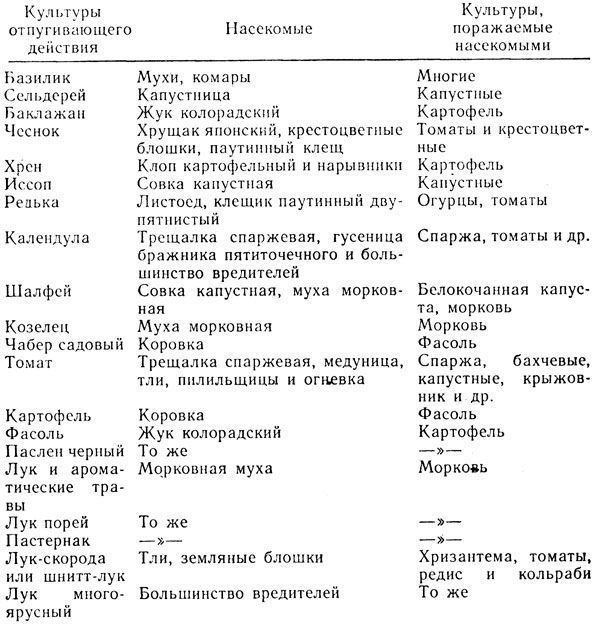

Also good for this purpose are wild rosemary, knotweed, buttercup, irgi and rowan leaves, thuja twigs, ivy, branches and fruits of horse chestnut, as well as juniper, dry peel of lemons, oranges, tangerines. They do not like flies and aloe juice. If you dilute it with hot water and put it in the toilet, the flies will disappear.
You can plant marigolds or basil near the toilet building in the country. Their smell also repels these insects quite well. But this is only if they live in the country all the time. In the heat without watering, the plants can simply dry out.
Some people install a toilet bowl from a dry closet, blocking insects from tightly accessing the contents of the drain pit.
Some people make a hole in the toilet that is equal to the hole in the floor of the toilet and fix the toilet over the hole. Close the top with a lid.
About maggots
We most often suffer from flies in the summer, in August and July. They start to multiply.
About the appearance of an insect
- Eggs. These insects are fertile. The fly can lay up to 150 eggs immediately. Flies hide them where there is a lot of garbage and manure, it is humid. But the female can choose another place for them: kitchen waste, meat and fish, rotten vegetables.
- Larvae. After 8 hours or a day, the larva hatches from the egg, the very maggot. She stays in this environment and feeds on spoiled food. In the larval stage, the insect lives from 5 days to 2 weeks.
- Doll. The maggot matures, the pupation of the larva begins. This takes 3 or 4 weeks. First, the insect moves to a dry place, where it becomes a pupa.
- Fly. A fly emerges from their pupa, which lives only a month. But even during this time, one insect (female) lays from 500 to 2 thousand eggs. And the fly's development process begins again.
Why are fly larvae dangerous?
Why is it so important to fight fly larvae, how are they dangerous? These insects are carriers of pathogens of many intestinal diseases. But that's not all. If you buy meat and fish from a market where they are not stored in the freezer, green flies will lay their eggs in them. Larvae emerge from them. If you eat 1̶ 2 maggots with these products, there will be nothing terrible, although it is unpleasant. They will be excreted from the body.


then leave fresh meat unattended, as flies immediately "sprinkle" it
But if a person has swallowed a lot of insects, then his health will deteriorate sharply: his stomach will start to ache, he will be nauseous, vomiting, diarrhea will appear, he will suffer from itching. Doctors advise taking a saline laxative immediately. Maggots are not so dangerous for humans.But those who rest in Brazil, Mexico, Africa should be afraid of local flies, their larvae live in the human body and eat it. Therefore, in the tropics, you cannot run barefoot, dry your clothes under the trees, you must constantly use repellents.
Female fertility
Flies acquire the ability to fertilize the day after they are born. Young females lay about 70 eggs at a time, more mature individuals - up to 120 eggs. Fly eggs are oval, off-white, no more than 1 mm in size. They are always located in small groups. Photos of fly eggs can be seen below.
Flies in the adult stage live from 14 days to 2 months, depending on climatic conditions. During its life, it manages to lay about 2 thousand eggs. They begin to show activity in early spring, when the air temperature rises to +10 degrees Celsius. At the end of September, October, with a decrease in climatic indicators, the insect hibernates. Flies, larvae, pupae overwinter.
On a note!
Household flies lay their eggs in feces, rotting plants, vegetables, in order to immediately provide the larvae with food after birth. Carrion fly, or meat fly, is viviparous. Reproduces in the same large number of first instar larvae, about 1 mm in size. The environment for the development of young meatflies is the dead tissue of animals, humans. Some larvae are predators, eat their own kind, grasshoppers, snails, or live under the skin of a person, animal, causing terrible diseases - myiasis.
Insect extermination
How to get rid of the larvae? Those insects that have already settled in the house, in the basement, must be destroyed. To avoid re-infection, do not forget about preventive measures. Consider several ways that will help remove maggots, get rid of them.
Boiling water
You don't want to be poisoned with chemicals, but you need to kill the maggots that crawl around the house? Use boiling water. First, bring water to a boil in a large bowl. Use this boiling water to treat the bucket in which you store the garbage to kill eggs or fly larvae. Take out the trash before that. As a preventive measure, pour some vinegar into the water so that the bucket no longer attracts flies. They don't like the smell of vinegar.
Maggots can also be found in sewer pipes if there are pieces of rotting food left there. To destroy them, pour boiling water into the sink. You can pour water with vinegar. Scald the sink and bucket with boiling water every 7 days to prevent insects.


The disinfecting effect of boiling water is enhanced by adding a 2% solution of baking soda or soap
We remove the larvae from the kitchen and carpet
You didn’t have time to process the trash can, and maggots crawled through the kitchen. How to get rid of them? Get an insecticide with carbamate, permethrin, cypermethrin. The safest product that can contain one of these substances is shampoo used for animals. But before you buy a drug, study its composition. Once you have bought the insecticide, dilute it in water in a 2: 1 ratio (water and poison)... Pour the resulting solution into a spray bottle and spray over the kitchen surface. It remains to collect the larvae and throw away the trash. After processing, wipe the kitchen surface with an antibacterial agent, and then rinse everything thoroughly using warm water.
Life hack
Many people dislike the unattractive look of long sticky tape hanging from the ceiling and sticking to their hair or clothing. Instead, you can make traps in the form of small flags strung on a thread and suspended from the ceiling.
A flush toilet is an excellent place for life and reproduction of various creatures that are able to feed on human waste products.How to get rid of maggots and other unpleasant reptiles that settled in the dacha? Is it possible to use chemistry in this case, or is it better to use traditional folk remedies? It is possible to answer these questions only after a detailed investigation and understanding where such unpleasant creatures come from.
Prophylaxis
Even if you were able to destroy the larvae, this is not a guarantee that there will be no re-infection. Flies fly everywhere, they can easily enter your house or fly into your garden area, and everything will have to start over. Therefore, preventive measures are so important.
- Cleanliness in the house. Do not store rotting food residues in the apartment, throw them away immediately. Take out the trash regularly, make sure the bucket does not overflow. Put the leftover food in bags, and only then put them in the trash can. Remember to close it with a lid.
- Keep flies out of the house. Hang the nets. If they nevertheless flew towards you, insect tapes will help.
- Check the products. Many people store food at home or store it in the cellar. Check your stocks constantly. If they start to rot, throw away the spoiled food.
- Concrete the area around the latrine or cesspool (1.5 m). If it is an unanalyzed restroom, clean it once a day and disinfect it with a 10% chlorine solution of lime.
- Will help fight flies and plants. Plant geraniums on the windowsill, the smell of which flies do not like. Plant an elder or bird cherry in an area near a restroom or heaps of manure.
Traps
The simplest fly trap
You can also make a simple trap. For this, a bottle of beer with its leftovers is taken. Flies flock to the smell, get inside the bottle, but cannot fly out.
Another trap is also effective: a little vinegar is poured into a glass jar, a few drops of liquid are added to wash the dishes. Then the jar is wrapped in foil and a hole is made in it, into which an adult fly will crawl. Having flown into the jar, the fly will not be able to get out, and then it will drown in the liquid.
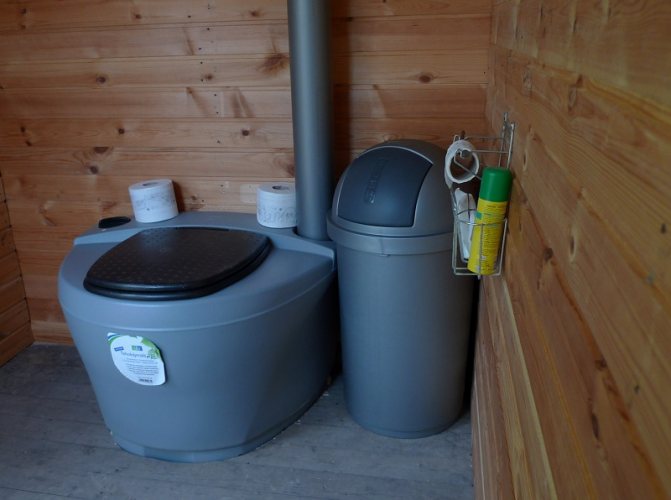

You can plant a nut or black elderberry near the street toilet. These plants are not just flies. Mosquitoes also dislike their smell.

